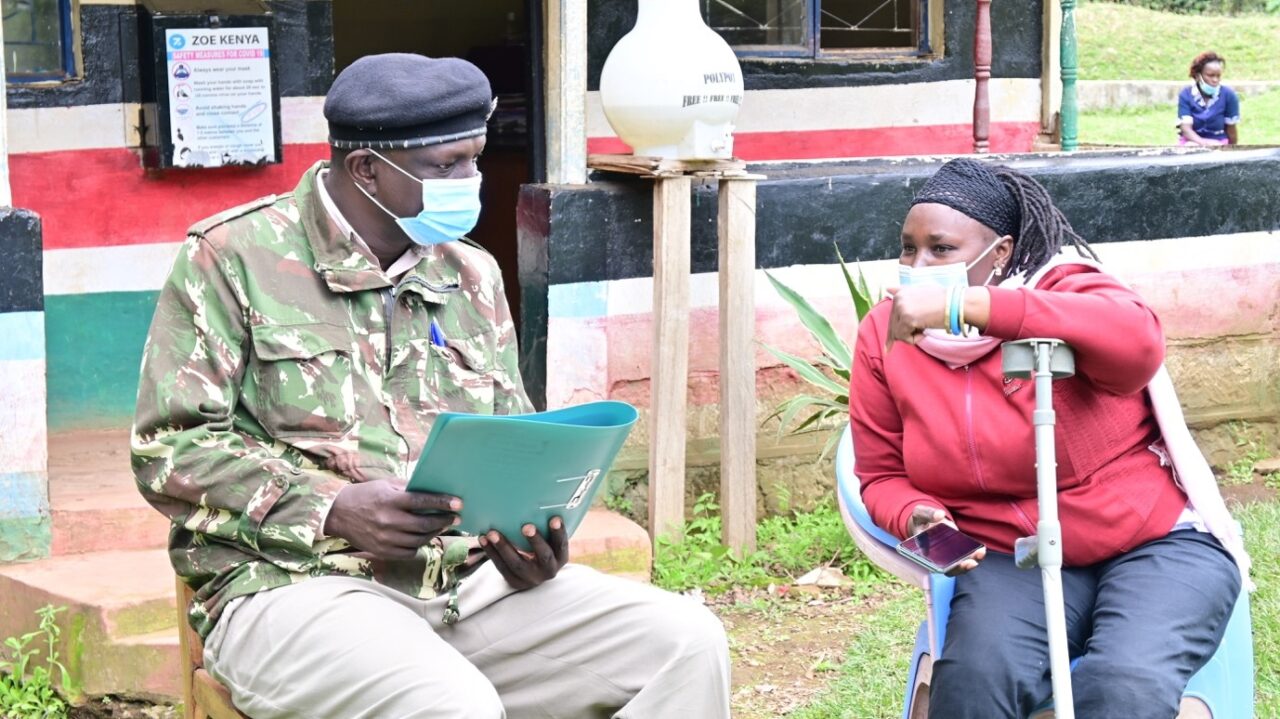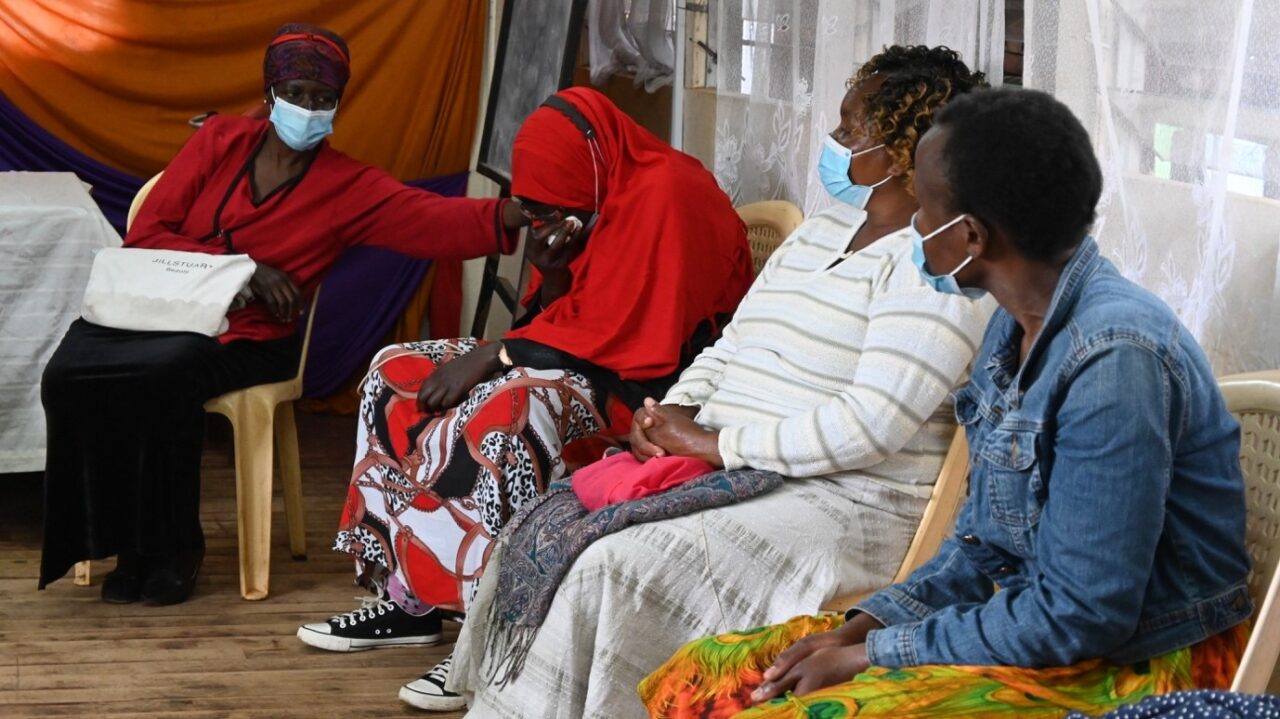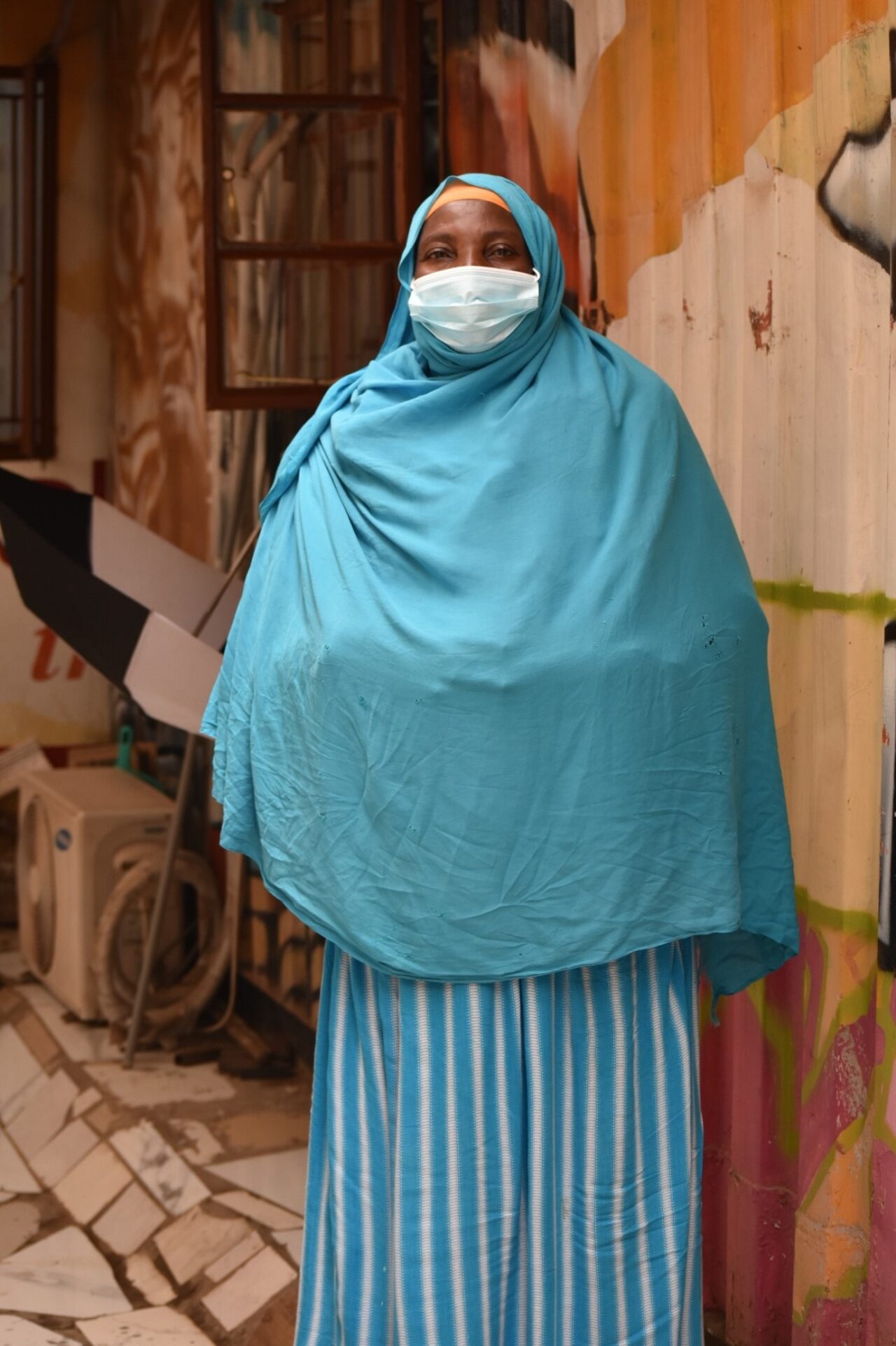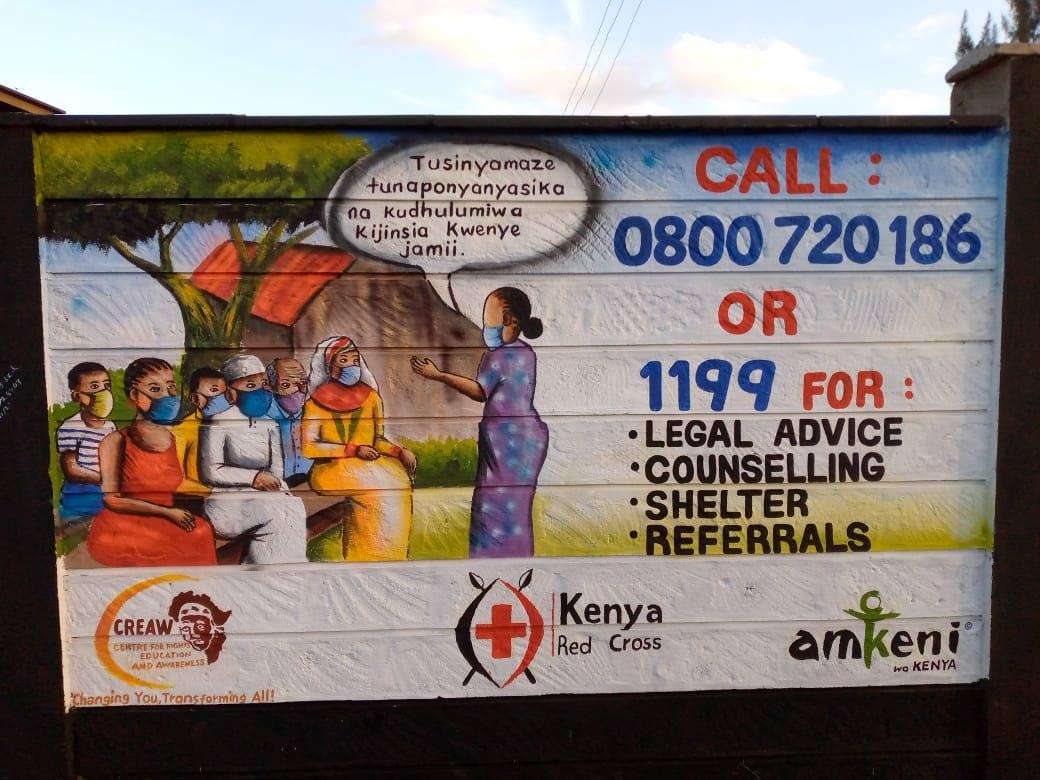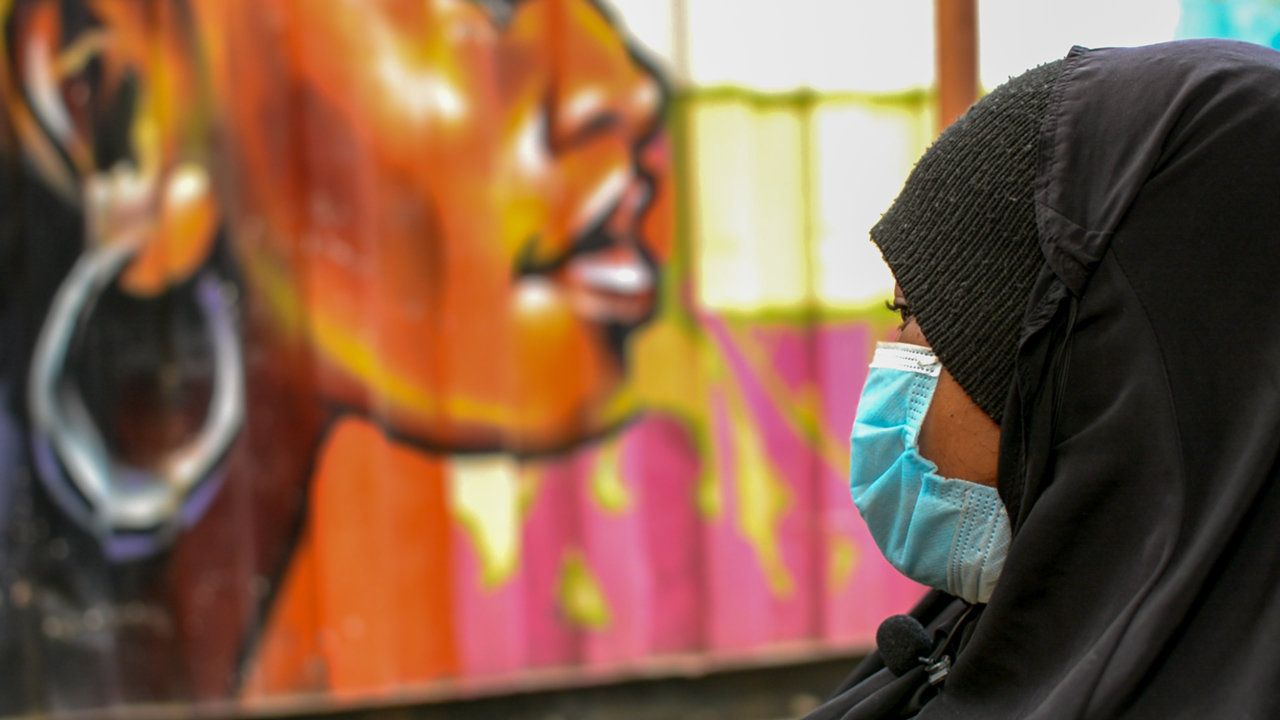45-year-old Jane Wangechi Ngoge, has revolutionised her life, from being the down trodden woman who lived from hand to mouth, to a successful entrepreneur, striving so hard to break the glass ceiling of agribusiness in the capital city of Nairobi.
Before the COVID-19 pandemic struck in 2020, the mother of 3 was having marital challenges with her partner. His meagre income as a mason could not sustain the family comfortably. She started selling samosas by the roadside in her neighbourhood in Kayole, however this was short-lived.
 “During lockdown and restriction of movement in the country, my world came crumbling down. My husband left. I had to start doing menial jobs to support my children and I. The jobs were also not easy to come by,” Narrates Wangechi, as she recounts the challenges she went through to ensure she provides basic needs for her children.
“During lockdown and restriction of movement in the country, my world came crumbling down. My husband left. I had to start doing menial jobs to support my children and I. The jobs were also not easy to come by,” Narrates Wangechi, as she recounts the challenges she went through to ensure she provides basic needs for her children.
It was during her low moment that she was listening to a radio show where CREAW’s toll free number 0800 720 186 was shared for anyone who needed psychosocial support. Luckily for her, she was interrogated and put under the 3 months’ cash transfer program, which sought to cushion families from the adverse effects of COVID-19.
“When I got the first cash transfer of Kes 7,000, I started selling fruits around my neighbourhood. I joined a chama where I was saving Kes 300 every 2 weeks. When I got the second and third instalments, I opened a shop coupled with an M-Pesa agency,” Says Wangechi as she chuckles.
That was never the end for her. Wangechi was among beneficiaries who went through business development training, where women were taught on how to budget, do record keeping as well as finding market for their products.
 “Access to information and business skills remain a major challenge to women survivors of GBV. Providing training on financial literacy and life-skills is crucial for efficient use of financial services and products. With the right training, they are able to revive their businesses, acquire productive assets and save for their future plans,” Confirms Moses Okello, the Women Economic Empowerment Lead at CREAW, who has been supporting women under the program rebuild their life post-COVID-19.
“Access to information and business skills remain a major challenge to women survivors of GBV. Providing training on financial literacy and life-skills is crucial for efficient use of financial services and products. With the right training, they are able to revive their businesses, acquire productive assets and save for their future plans,” Confirms Moses Okello, the Women Economic Empowerment Lead at CREAW, who has been supporting women under the program rebuild their life post-COVID-19.
With the introduction of Jasiri Fund, the first of its kind financial inclusion program for survivors of gender based violence to access affordable loans, Wangechi took a loan of Kes 90,000, which she used to restock her business as well as hired a motorbike operator who has been supporting her in delivery of goods as well as transportation.
“From the money I had saved in the Chama, I got a dairy cow which delivered recently. I milk 13 litres of milk daily and I sell a litre of fresh milk around my neighbourhood at Kes 70. I also added some chicken, two goats and two pigs.’’
Through the business training she underwent, Wachechi has mastered the art of creating several flows of income. From the milk she sells, she makes roughly Kes 910 daily, whereas the shop has become her other economic backbone. In a good week, she fetches Kes 3600 in profits.

“I am now comfortably supporting my children. My firstborn son joined university recently. I am happy to say that my life feels like a dream come true. I never thought that I could one day run
successful businesses as well as comfortably take care of my family single handedly,” Smiles Wangechi.
She has been comfortably doing her monthly loan repayments of Kes 8,000 per month and looks forward to taking up another loan to help her purchase a piece of land where she will fully venture into agribusiness. From doing menial jobs to now being an employer of 3 staff looking up to her, Wangechi now exemplifies the face of resilience and what a woman can do when economically empowered.


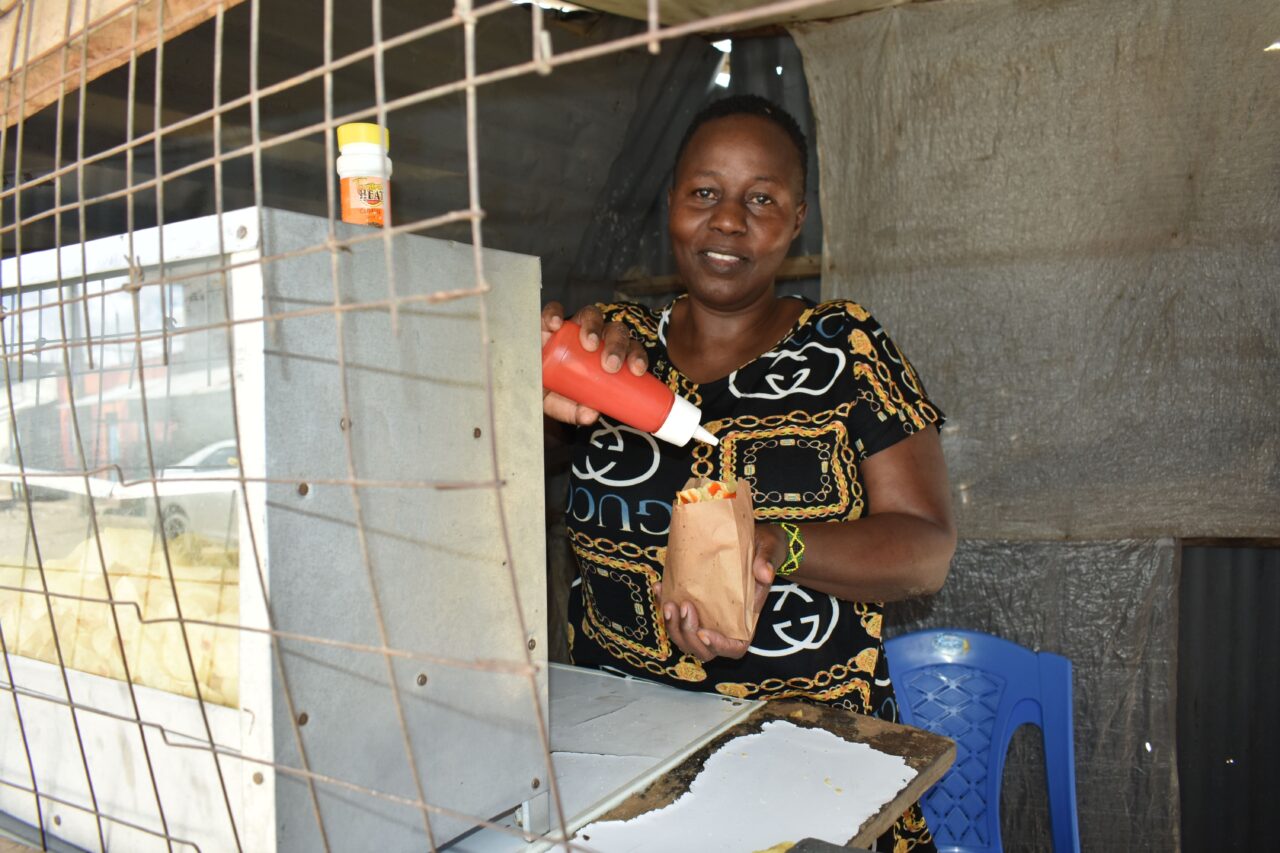
 Mary Bandi from Kayole in Nairobi was one such woman. She had lost her hotel job and was now doing laundry work that could barely meet the needs of her family. On the side, she had an outstanding mortgage loan that needed to be cleared.
Mary Bandi from Kayole in Nairobi was one such woman. She had lost her hotel job and was now doing laundry work that could barely meet the needs of her family. On the side, she had an outstanding mortgage loan that needed to be cleared. By the time we were leaving her home, Mary had already gotten second approval for a loan of KES 65,000. She wants to use it in expanding her handbags business as well as find another branch for the same.
By the time we were leaving her home, Mary had already gotten second approval for a loan of KES 65,000. She wants to use it in expanding her handbags business as well as find another branch for the same.
 In cultures where FGM is entrenched in tradition and social norms, it takes courage to speak up against it. One such voice is that of 62 year old Nooretet Saidimu from Olootingual village in Narok County. The reformed cutter in now spearheading the protection of girls against the vice, albeit one village at a time. We were interested to find out what motivated the U-turn from a perpetrator to a protector.
In cultures where FGM is entrenched in tradition and social norms, it takes courage to speak up against it. One such voice is that of 62 year old Nooretet Saidimu from Olootingual village in Narok County. The reformed cutter in now spearheading the protection of girls against the vice, albeit one village at a time. We were interested to find out what motivated the U-turn from a perpetrator to a protector. Did you immediately let go off the practice and turned a new leaf?
Did you immediately let go off the practice and turned a new leaf?

 Another agent of change is Mellen Gisare Ragira. Her broad smile and active participation during a community dialogue, organized by a team from Nyamache Tea Factory in Kisii county, can be seen from a distance.
Another agent of change is Mellen Gisare Ragira. Her broad smile and active participation during a community dialogue, organized by a team from Nyamache Tea Factory in Kisii county, can be seen from a distance.